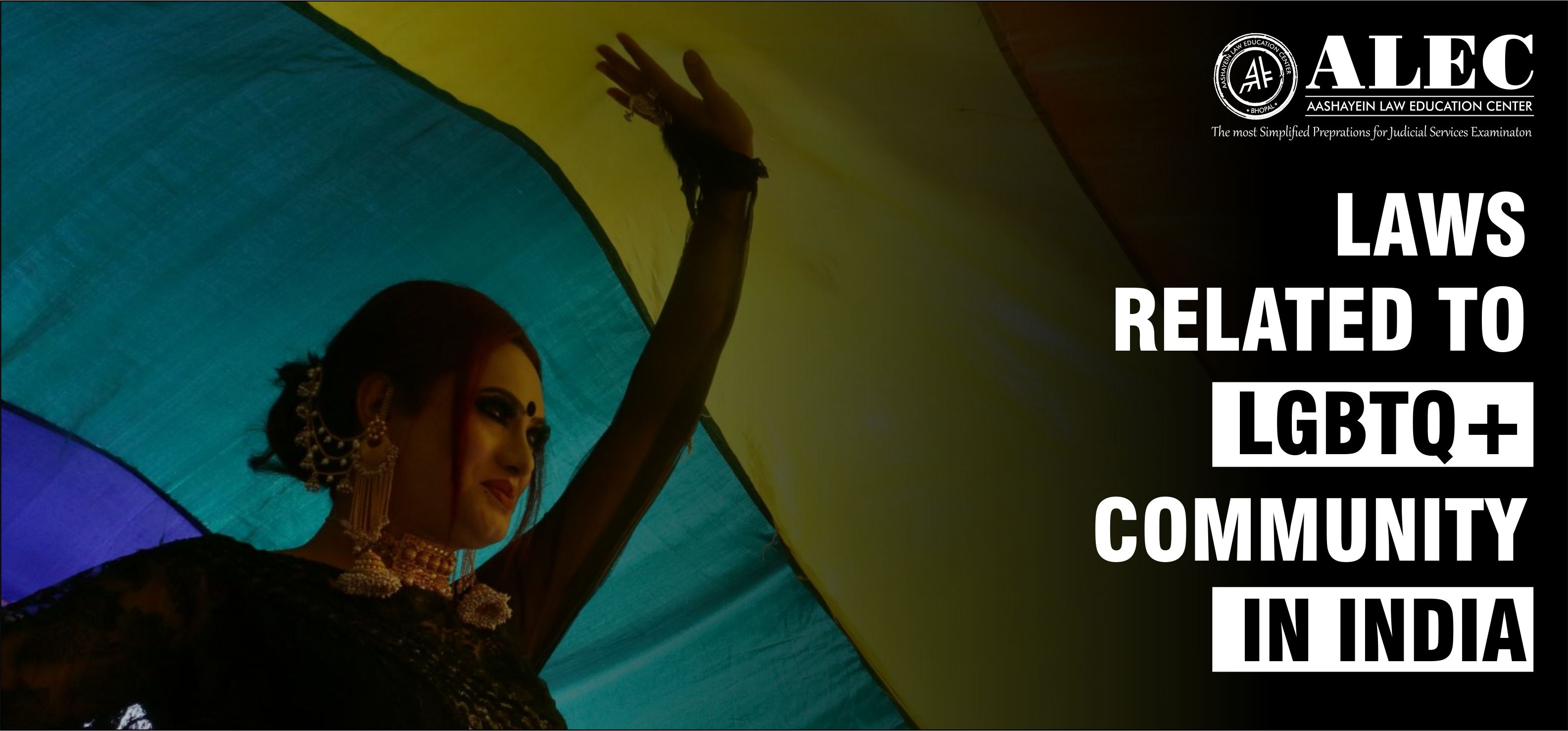"I am what I am, so take me as I am ~ William Shakespeare"
The LGBTQ+ community is loosely a group of Lesbian, Gay, Bisexual, Transgender, Queer+ people. These communities generally celebrate pride, diversity, individuality, and sexuality. The LGBTQ+ people have different sexual preferences and sometimes different sexual orientation. The people of this community had been subjected to cruelty since ages because of their individuality. Due to existing cruelty and discrimination, these people are being deprived of various rights like marital rights, equal status at various platforms like employment, education etc. In India, recently, the campaigning related to the awareness regarding individuality and acceptance of the people of this community started increasing. The pride parade held everywhere around the globe is a method of normalising the existence of LGBTQ+ community. The various countries have passed legalised same-sex marriage and have passed various laws in order to uplift and normalise the existence of this community.
In India, the government has passed various laws for the upliftment and normalization of LGBTQ+ community which are as follows:-
1) DECRIMINALISATION OF SECTION 377:-
In the year 2018, the Supreme Court of India has partly decriminalised the Section 377 of the Indian Penal Code, 1860, in the case of Navtej Singh Johar v. Union of India AIR 2018 SC 4321 by the Constitutional Bench headed by then CJI Justice Dipak Mishra. The erstwhile Section 377 criminalised sexual intercourse between homosexual people. The judgment was a baby step towards the battle of equal recognition and normalisation of the people of LGBTQ community. In this case the Apex Court has explained the problems faced by the people of LGBTQ community and also upheld their constitutional rights. In the KS Puttuswamy case the Apex Court held that right to privacy is a part of Article 21. In Navtej Singh Johar's case the Supreme Court of India held that existence of Section 377 violates Right to Privacy and hence it is unconstitutional; the judgment was made in consonance with the Puttuswamy's case.
On the lines of decriminalisation of Section 377, petitions are filed in the courts for recognition of same-sex marriages.
2) TRANSGENDER PERSONS (PROTECTION OF RIGHTS) ACT, 2019:-
The transgenders has been recognised in Indian mythology however, in the British era they have been subjected to cruelty and discrimination, which resulted in the backwardness of these people. In order to reinstate the status of transgender community various judgments and legislation has been passed.
In the case of National Legal Services Authority v. Union of India AIR 2014 SC 1863, the Apex Court has recognised Transgender as the third gender. It was the most celebrated judgment and on these lines in the year 2014 first ever Bill for the rights of transgender community had been introduced, however, it was lapsed in the year 2016. The present law was introduced in the year 2019 but was highly criticised as it was passed
haphazardly. The purpose of this legislation is to provide equal access to education, jobs and other opportunities to the transgender people.
The Act prohibits any kind of discrimination against the transgender community, further it punishes any kind of abuse towards transgender under Section 354, Section 354A, Section 354B, Section 376, Section 498A, Section 499 of Indian Penal Code, 1860. This piece of legislation also provides for medical facilities, shelter homes and rehabilitation of the people of community. It further protects the people of transgender community from their hostile families and provides provisions for their welfare.
You can also read the latest judgment by visiting [Latest Judgment]
For more information, visit [Aashayein Enquiry Section]
In toto, the Act is for the welfare and protection of transgender people.
3) RESERVATION TO TRANSGENDER PEOPLE:-
In the year 2014, in the case of National Legal Services Authority v. Union of India AIR 2014 SC 1863, the Apex Court declared transgender as the third gender. By virtue of this declaration the transgender has been made eligible to the reservation policy of India. The transgender community has been granted educational and economic reservation according to the Constitution of India.
4) RIGHTS UNDER CONSTITUTION OF INDIA:-
The Constitution of India has been framed after the Independence War; the framing was itself an independence from all the shackles. The Article 14, 15, 21 has been included in the Constitution which guarantees every person right to equality and right to life which are the basic human rights. The Article 14 prohibits any kind of discrimination on grounds of religion, race, caste, sex or place of birth and Article 21 guarantees right to life and personal liberty to every person. However, the rights conferred under Indian Constitution were not sufficient; therefore, the special laws were required to increase the effectiveness of these provision.
The LGBTQ community since ages has been made subject to the atrocities. The aforementioned legislation may not be sufficient for the resolution of the issue, but these are way forward towards normalising atleast the discussion. In India, the youth is aware about the difficulties and problems related to the LGBTQ community. For the resolution of these problems, various seminars, pride parade, painting of pride wall, discussion about it on open platforms has been conducted actively. The people are trying to normalise atleast the conversation about it and the foundation stone of all this is the 377 judgment. The judgment of the Apex Court of decriminalising Section 377 has been highly celebrated throughout the country. The biggest merit of this judgment is that people started talking about these issues.
The legislations for the right of LGBTQ community are mere baby steps as the biggest battle of amending marital, adoption and all other related laws, is awaited.

